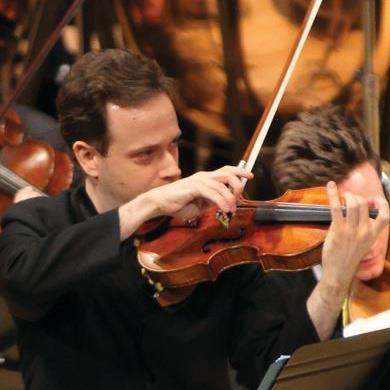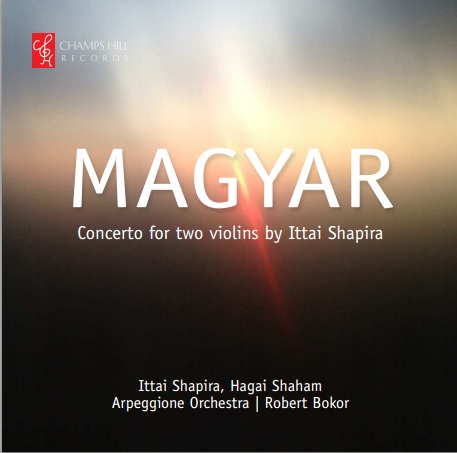
Ittai Shapira has been a musician his entire life. He began playing violin in his native Israel at age 9 and never considered another career.
But in recent years, his career path has taken a turn, as New Yorker Shapira went from touring to perform a standard violin repertoire to getting to know composers who would write new music for him, and more recently, to composing his own works.
“It happened gradually and suddenly,” Shapira recently told me.
We met the soft-spoken yet animated musician through a mutual friend a few years ago, not long after he was attacked on his way to the post office in 2005. He had very little memory of what happened, but he was left with recurring headaches accompanied by a persistent series of notes. Once he finally wrote those notes down, he saw an image of falling on ice … and he heard more notes.

In three weeks, he had six melodies that ultimately became “Concierto Latino,” which includes three parts: The Attack, Lament, Party.
To write Concierto Latino, Shapira had to learn how to write for a full orchestra. but in spite of acquiring this new skill, “I was convinced it was a one-time fluke.” He was wrong.
When BP’s Deepwater Horizon oil rig exploded in the Gulf of Mexico, triggering what the Smithsonian says ” is recognized as the worst oil spill in U.S. history,” Shapira was in Key West. he began thinking about how musicians and fishermen are similar, in that they aren’t just professions, they’re lifestyles of risk and uncertainty. That inspiration led to “The Old Man and the Sea.”
In that same theme of how disaster affects a region and a culture, Shapira then collaborated with composer Theodore Wiprud on a violin concerto called simply”Katrina,” drawing on the rich musical heritage of New Orleans and the surrounding region.
So Shapira was somewhat unintentionally becoming a composer in addition to a violinist, turning negative events into beautiful music, when his next inspiration came along — a Will Smith movie, “Seven Pounds,” that he really disliked.
The movie’s pay-it-forward theme has Smith performing seven acts of kindness to atone for a terrible car crash he caused that killed seven people. Even though Shapira takes issue with the movie’s conclusion, he doesn’t want to spoil it. But like after his 2005 attack, he left that movie and was dogged by a 27-note sequence that wouldn’t stop.

He got thinking about his violin teacher, Ilona Feher, a Hungarian-born Holocaust survivor who created the Israeli school of violin playing and came out of this terrible experience to change numerous lives. Shapira co-founded the Ilona Feher Foundation with colleague Hagai Shaham, so he’d already done work to honor her legacy, and composing something was the next step.
“Everything about this piece is about paying it forward,” Shapira said of Magyar, a double violin concerto that premiered this month.
He wrote the piece for his former teacher who shaped his entire life’s path, and in doing so, he collaborated with numerous people, including Hungarian conductor Robert Bokor, an Austrian orchestra, an organization that he wanted to help promote, and a former classmate who is publishing the work.
Working with multiple people on a creative project has made Shapira conscious of the complexities of paying it forward.
“When you receive a gift, you need to be up to the task,” he said. If he’d taken the investors’ money and not delivered, for example, he might have robbed other musicians of future opportunities. “If it doesn’t go well, I want to be able to go back and say, ‘I really tried.'”
“You have to create a situation where you can pay it forward again,” Shapira added. Even if the outcome isn’t what everyone might have hoped, the communication and trust should leave everyone feeling like the effort was worthwhile, so they’ll all try again in the future. “It has to be handled with responsibility and respect.
“Every single element of this project is a reminder of kindness I’ve experience,” he said. “Over time, I realized that this process is one of the best things about being a musician. It’s about a common interest and passion. It’s about engagement and communication. And that is how one pays it forward.”

Ittai Shapira sees music as a way to pay it forward
